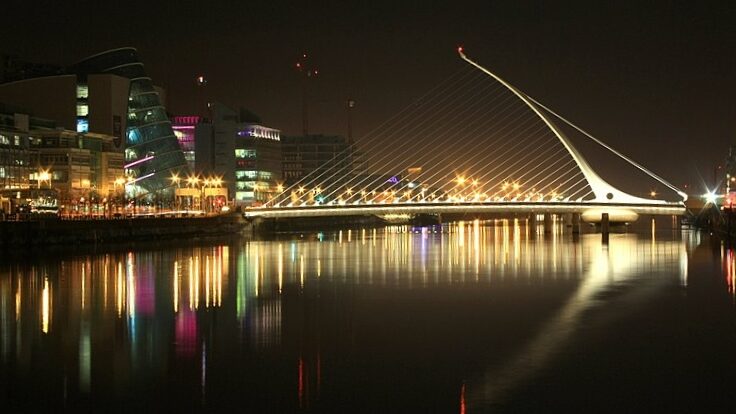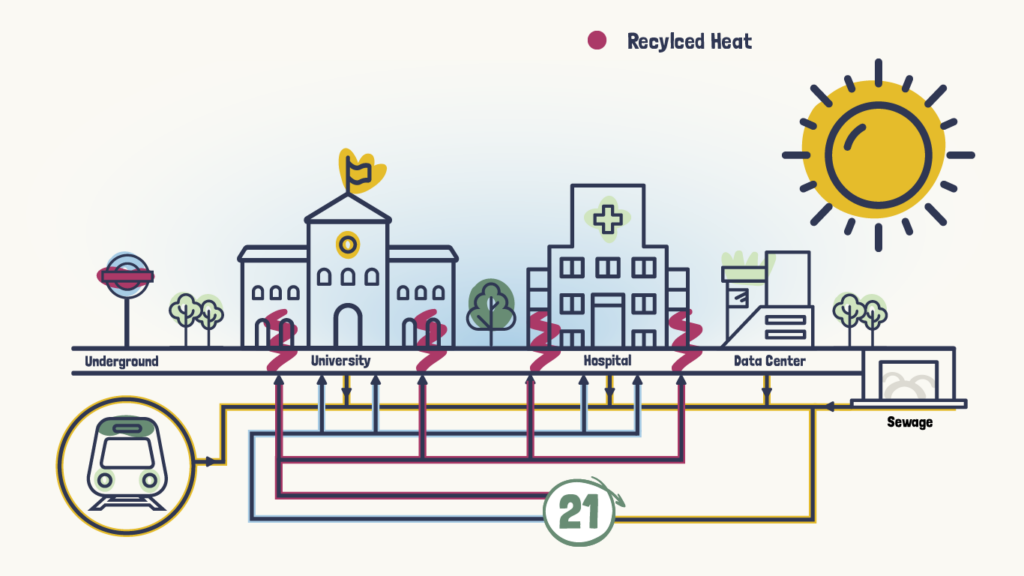
In the Tallaght area of Dublin, there is a data center that needs cooling. At the same time, the surrounding households need heating. This is a perfect case for a mutually beneficial thermal energy network.
It is also a perfect project for TEN21, a collaboration that Energy Modelling Lab is a partner of. In Dublin, the TEN21 toolbox has been used to support local officials on how to expand the district heating network to utilize waste heat from the data center. We have built an energy system model to find an efficient expansion strategy from a techno-economic perspective. In addition, we created a strategy for commercializing the district heating activity on a cost-recovery basis.
All of this has been done in close dialogue with South Dublin County Council and Dublin’s Energy Agency to ensure that the work will have a real-world impact.
The TEN21 project is assisting cities all over Europe to deliver climate-friendly thermal energy.
Sewage as part of the future heating and cooling
If you want to learn more about recycling heat from for example sewage, metros, and datacenters, then go to TEN21.eu.


MODELLING DUBLIN
We developed an optimization model within the TIMES framework.
It first and foremost covers the heat and power sector in Dublin. But this model has an especially high level of detail.

NEUTRAL SCENARIOS
Energy Modelling Lab developed a series of CO2-neutral scenarios for cooling and heating in Dublin.
In this way, we can identify the perfect fit for each district.
Duration: April 2021
Project: TEN21
Partners: South Dublin County Council, Dublin’s Energy Agency (CODEMA)
EML Team: Ida Græsted Jensen and Andrea Marin Radoszynski
